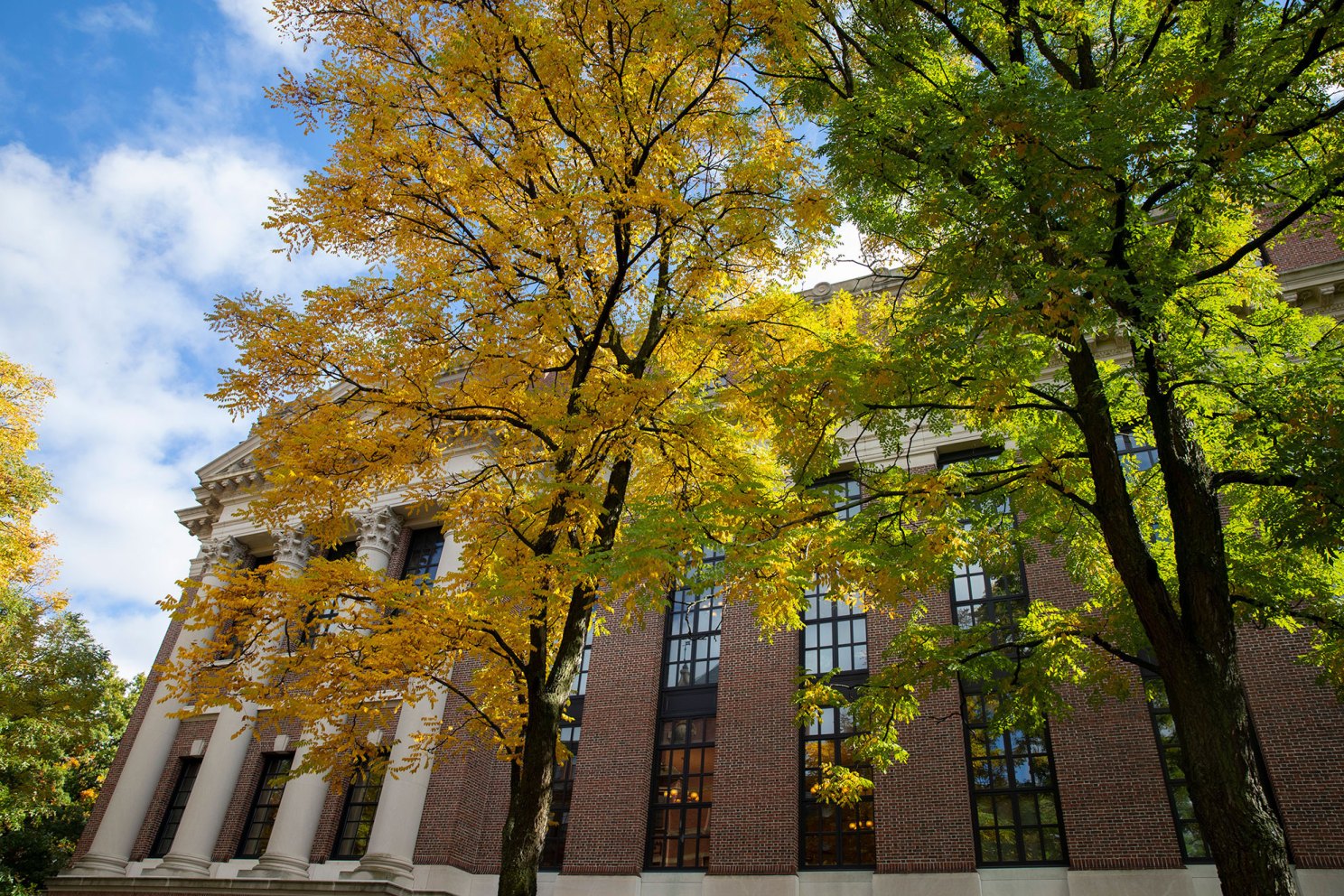
Widener Library in Harvard Yard.
Harvard file photo
Court victory for Harvard in research funding fight
Government acted unlawfully when it cut grants, ruling says
A U.S. District Court in Boston on Wednesday struck down the federal government’s cancellation of $2.2 billion in research funding to Harvard, rejecting as unconstitutional the government’s attempt to force campus changes that the University argues would violate its First Amendment rights and academic freedom.
The suit seeking restoration of the funding was filed by Harvard in April in response to a freeze order issued by the government.
The summary judgment, issued by U.S. District Judge Allison Burroughs, pushed back against the Trump administration’s claim that it is acting in response to antisemitism at Harvard.
While combating antisemitism is “indisputably an important and worthy objective,” the court wrote, the allegations amount to little more than “a smoke screen” for broad demands that seek to bring the University into line with the administration’s preferred ideological viewpoint. This effort violates Harvard’s First Amendment rights and ignores procedural requirements laid out in federal law, the court ruled.
“The idea that fighting antisemitism is Defendants’ true aim is belied by the fact that the majority of the demands they are making of Harvard to restore its research funding are directed, on their face, at Harvard’s governance, staffing and hiring practices, and admissions policies—all of which have little to do with antisemitism and everything to do with Defendants’ power and political views,” the court said, adding: “The First Amendment is important and the right to free speech must be zealously guarded. Free speech has always been a hallmark of our democracy.”
Harvard President Alan Garber responded to the summary judgment in a note to the community on Wednesday.
“The ruling affirms Harvard’s First Amendment and procedural rights, and validates our arguments in defense of the University’s academic freedom, critical scientific research, and the core principles of American higher education,” he said. “Even as we acknowledge the important principles affirmed in today’s ruling, we will continue to assess the implications of the opinion, monitor further legal developments, and be mindful of the changing landscape in which we seek to fulfill our mission.”
The court’s decision, which the Trump administration has said it will appeal, is the latest development in a fight that has escalated since April 11, when the government attached federal funding to Harvard to a series of demands that included changes to governance and hiring practices and viewpoint audits of faculty, students, and staff.
“No government — regardless of which party is in power — should dictate what private universities can teach, whom they can admit and hire, and which areas of study and inquiry they can pursue,” Garber wrote in response to the demands. Hours later, the administration announced it was freezing $2.2 billion in grants and $60 million in contracts to the University, funds that were later terminated.
The abrupt halt to funding, which included multiyear grants and contracts, has broadly and severely disrupted University research. It has endangered investigations into everything from cancer to Alzheimer’s to climate change and triggered a scramble for alternate funding sources.
In May, Garber and Provost John Manning announced a $250 million fund intended to stabilize the University’s research enterprise while the dispute with the Trump administration played out. In a July update, Garber, Manning, and University financial officers said the federal government’s actions could cost Harvard as much as $1 billion annually.
The government has maintained that antisemitic incidents on campus violated civil rights laws and that Harvard’s attempts to address the situation have been inadequate. The University has countered by pointing to several actions aimed at fighting campus bias, including the release of task force reports focused on antisemitism and anti-Muslim bias. Garber described the reports as “hard hitting and painful” and pledged that they would be the basis for additional reforms.
The court noted these actions in its ruling.
“We must fight against antisemitism, but we equally need to protect our rights, including our right to free speech, and neither goal should nor needs to be sacrificed on the altar of the other. Harvard is currently, even if belatedly, taking steps it needs to take to combat antisemitism and seems willing to do even more if need be. Now it is the job of the courts to similarly step up, to act to safeguard academic freedom and freedom of speech as required by the Constitution, and to ensure that important research is not improperly subjected to arbitrary and procedurally infirm grant terminations, even if doing so risks the wrath of a government committed to its agenda no matter the cost.”




